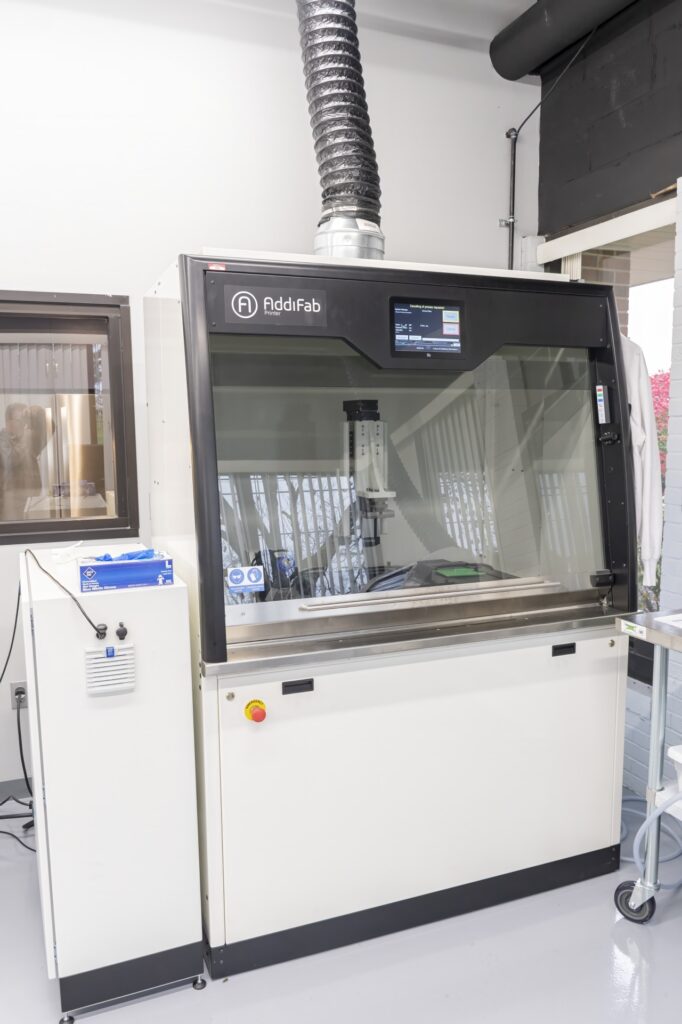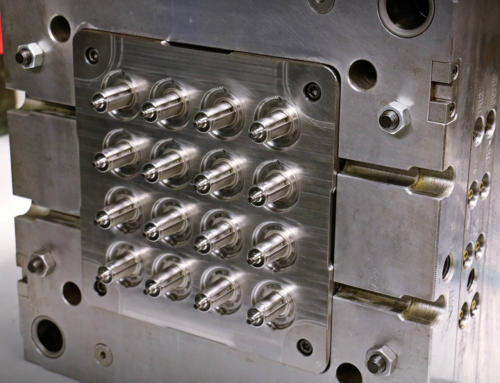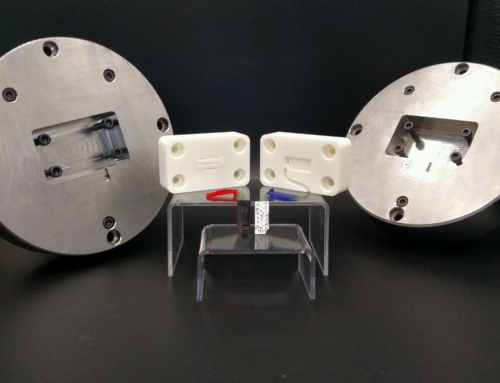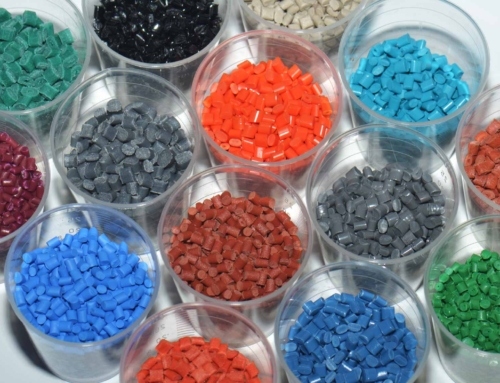What is Freeform Injection Molding?
For over 30 years, Forum Plastics has focused on being the development partner of choice for OEM partners. Our mantra has always been from prototype to production, and because of that focus, we have offered solutions including 3D printing/additive manufacturing as well as steel-based quick turn tooling. To further expand our rapid prototyping services, we made a recent investment in freeform injection molding to supplement our already robust rapid prototyping capabilities. The addition of FIM truly reinforces the idea of getting there faster with Forum.
What is Freeform Injection Molding?
Freeform injection molding (FIM) uses 3D printing technology to make molds and cavity blocks compatible with injection molding. This technology allows parts to be made from the design intent material. Our customers are not limited to a select few materials since all grades are possible. Utilizing the unique abilities of 3D printing, mold cavities can be made that otherwise would either not be possible to create or would have significantly higher lead times and costs.
The significant difference between FIM and regular injection molding is the advantage of being able to 3D print your cavity design. With this technology, a cavity can be designed, printed, and molded in 1-2 weeks, whereas machining a cavity out of steel would take many weeks and require the expertise of a tool maker.
Benefits of FIM
- Time to Market: FIM allows for the prototyping of a part without the commitment of purchasing a steel mold. When a company is looking to acquire a low-volume batch of prototypes or low-volume production, FIM allows prototype samples to be delivered with a short lead time. By reducing the lead time to design freeze, the part and mold geometry is easily transferred for manufacturing production tooling.
- Material Flexibility: 3D printing prototype parts is a common practice. The 3D parts do not have the same mechanical properties of an injection molded part. Using FIM technology, prototype parts are injection molded from the final material providing parts with the characteristics of a production part. Due to the ease of creating prototype molds, multiple materials can easily be tested using the same mold geometry. Forum has many injection molding plastics in stock to choose from that are compatible with the FIM process.
- Cost Savings: The cost benefit of FIM is lead time reduction to design freeze. FIM can be 96% faster than typical product cycles. FIM allows the use of production choice materials or various material considerations to optimize the final design, reducing downstream design changes. Conventional injection molding requires substantial investments in tooling. Design and material changes are difficult and costly with conventional tooling.

The Toolmaker is optimized for manufacturing of 3D-printed tooling. With precision- and repeatability, it delivers printed tools with detailed features as small as 10µm. It enables economic manufacturing of prototypes and small-scale production – in the entire range of injection moldable materials.
The Toolmaker is optimized for manufacturing of 3D-printed tooling. With precision- and repeatability, it delivers printed tools with detailed features as small as 10µm. It enables economic manufacturing of prototypes and small-scale production – in the entire range of injection moldable materials.
FIM is the perfect method for prototyping lower quantities as it is quick and cost effective compared to conventional steel tooling. This technology is geared toward low-volume, custom specialized components. However, for higher quantities, a customer may also decide to use FIM due to its ability to use the specified resin, ease of manufacturability, short lead times, and convenient modification process if design changes are needed. Freeform injection molding speeds up tool iterations with unseen details and tight tolerances. Whether you are a designer, engineer, or toolmaker, FIM is a gateway to optimum design freedom that maintains the strengths of injection molding.
FIM is a powerful tool in the hands of micro injection molders wanting to fast track product development and low-volume production. The inevitable question for medical device partners is FDA compliance. Multiple bioburden lab tests were conducted using various injection molding material grades, and the results were favorable. Tests results are available from Forum upon request.
The Process
- Print: The platform is specialized for injection mold tool making. High precision, tight tolerances, and unseen design freedom are enabled by our unique dissolvable resins. The printers utilizing the platform are resin based and begin at 10µm resolution and general tolerances of 10-80µm on the injection molded component.
- Inject: Freeform injection molding tools apply to any injection molding machine with an injection pressure of up to 2500 bar (36,000 psi) and max melt temperature of 450°C (842°F). The molding tools are compatible with all conventional injection molding feedstock materials such as composites, thermoplastics, thermoplastic elastomers (TPE), ceramics (CIM), and metals (MIM).
- Dissolve: The essential enabler of freeform injection molding is the soluble injection mold tools. Rather than ejecting the component from the injection mold tool as in conventional demolding, each injection mold tool dissolves to release the injection-molded part. This unique process gently submerges the filled injection mold tool in an alkaline-water solution for approximately 12-48 hours.
Or
- Conventional: Of course, the alternative to Dissolve is utilizing a conventional open and close mold is possible. Freeform injection molding lets you iterate at speed with fully printing tooling and replace the 3D-printed mold tools with a metal mold as your design matures.
Material Options
Material choice is one of the most critical decisions faced during development. Freeform injection molding is the ideal prototyping platform because it supports the full range of injection molding feedstock, treats the materials the same way, and achieves the same isotropic material properties as conventional injection molding for accurate manufacturing grade testing.
A prototype in a different material made by a different process is simply look-a-like, and therefore it will not perform like the final product. Freeform injection molding is not look-a-like. It produces components at manufacturing grade with the exact material properties of the production part ready for test and qualification. If part validation (IQ/OQ/PQ) is required, Forum will work with customers to develop testing protocols. Forum has the capability for performing part inspection in house using validated test methods.
Freeform injection molding offers access to everything including legacy, medical-grade, and FDA-approved materials. In other words: all materials approved for injection molding are compatible with FIM.
Forum is always looking for the next technology to support our customers’ needs and to expand our capabilities. With FIM, we saw the potential to place parts in customers’ hands very quickly and to support customers from design through the prototype/low-volume phase.
Utilizing our suite of capabilities and value-added services, our industry-focused commercial and technical teams are available to provide support, optimization recommendations, and partnership-focused business strategies to meet or exceed your program initiatives. From 3D printing of conceptual models and mold cavities to final assembly, packaging, and customized release test development, Forum is ready to support your device program needs.
Contact Forum today to get the conversation started.
Stay Connected
Sign up to get updates from Forum




